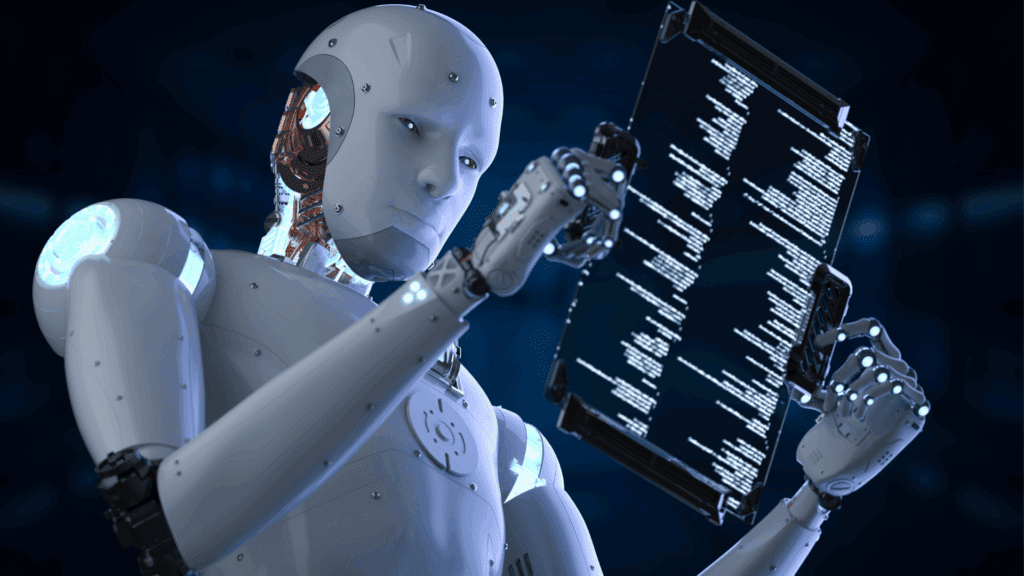1. AI-Driven Therapy: A New Frontier
Generative AI is enabling the development of AI-driven therapy tools that provide accessible mental health support. AI chatbots like Woebot and Tess use neuroscientific cognitive-behavioral techniques to engage users in therapeutic conversations, offering instant psychological support. Studies have shown significant reductions in symptoms of depression and anxiety among users of these AI-based therapists. These systems can be available 24/7, providing a level of accessibility that traditional in-person therapy often cannot match. In areas with limited access to mental health professionals, such tools can act as an important bridge until direct care is available. Additionally, AI’s ability to store and recall past user interactions allows for continuity of care, creating a more personalized and context-aware experience over time.
2. Personalized Care Plans
One of the most promising applications of generative AI in mental health is the creation of personalized care plans. By analyzing vast amounts of data, AI can tailor interventions to individual clients, considering their unique medical history, lifestyle, and genetic information. This approach not only enhances the effectiveness of interventions but also improves client outcomes. For example, two individuals with similar symptoms may require entirely different strategies depending on their stress triggers, sleep patterns, and cognitive strengths. AI can recognize these nuances and adjust recommendations dynamically, much like a skilled clinician who continually adapts their approach as new information emerges.
3. Efficient Diagnostic Testing
Generative AI is transforming the diagnostic process in mental health care. AI systems can rapidly compile and analyze a client’s medical history, family background, and other nuanced factors to diagnose and even predict mental health disorders. This capability allows for faster and more accurate assessments, overcoming the traditional limitations of fragmented data sources. Such technology also reduces administrative burdens on clinicians, freeing up more time for direct client interaction. By identifying early warning signs, AI can support preventative care strategies that minimize the progression of symptoms before they become more severe.
4. Monitoring Mental Health Over Time
AI’s ability to monitor subtle changes in a client’s speech or text can provide early warnings of worsening symptoms of depression and anxiety. This continuous monitoring helps in timely interventions, potentially preventing severe mental health crises. Generative AI systems can detect these changes and alert healthcare providers, ensuring proactive care. Over time, AI can also identify recurring behavioral patterns, such as seasonal fluctuations in mood or stress levels during certain life events, helping both clients and providers prepare more effective coping strategies in advance.
5. Addressing Stigma and Accessibility
Generative AI is helping to reduce the stigma associated with mental health conditions by providing anonymous and accessible support. Many individuals avoid seeking help due to the stigma attached to mental health issues. AI-driven tools offer a private and non-judgmental space for individuals to seek assistance, thereby increasing access to care. These tools can also serve as an initial step for those hesitant to engage in more formal services, easing them into the process and helping them gain confidence in discussing their mental health needs. Furthermore, because AI tools can be accessed from anywhere, they remove geographical barriers, making support possible even in remote or underserved areas.
6. Enhancing Clinical Decision-Making
Generative AI can integrate information from various sources, including clinical exams, client self-reports, digital phenotyping, genetics, and neuroimaging, to create novel diagnostic categories. This comprehensive approach can better reflect the underlying nature of mental illnesses and guide effective interventions. AI’s ability to process and analyze complex data sets enhances clinical decision-making, leading to improved client care. This synthesis of information not only assists in confirming diagnoses but can also reveal subtle correlations between lifestyle habits, neurological patterns, and symptom changes—connections that may be too complex for human analysis alone.

7. Ethical and Safety Considerations
While generative AI holds great promise, it also presents ethical and safety challenges. The “black box” nature of AI algorithms makes it difficult to predict how AI will respond in certain situations, particularly in mental health crises. Studies have shown that AI chatbots can sometimes provide unhelpful or even harmful responses, highlighting the need for careful oversight and regulation. Additionally, issues of data privacy are paramount, as mental health information is among the most sensitive data a person can share. Establishing transparent algorithms, clear accountability for AI decisions, and robust safeguards against misuse will be essential as these tools become more integrated into care systems.
8. Neuroscience and Generative AI: A Synergistic Approach
Generative AI is not only revolutionizing mental health care delivery but also enhancing our understanding of the brain itself. Neuroscientists are leveraging AI to analyze complex brain imaging data, uncovering new insights into neural networks and their role in mental health disorders. For instance, AI algorithms can now identify subtle patterns in fMRI scans that correlate with specific mental health conditions, potentially leading to earlier and more accurate diagnoses.Moreover, generative AI models are being used to simulate neural activity, allowing researchers to test hypotheses about brain function without invasive procedures.
This approach is particularly valuable in studying conditions like depression and anxiety, where the interplay between different brain regions is crucial. By combining neuroscientific knowledge with AI’s pattern recognition capabilities, we’re gaining a more nuanced understanding of mental health at the neurological level.
This synergy between neuroscience and AI opens the door to highly targeted interventions based on brain function profiles, offering a level of precision medicine that was once only theoretical. Over time, these advancements may also help predict how an individual’s brain is likely to respond to certain interventions, allowing for truly personalized strategies from the outset.
9. Neuroplasticity and AI-Assisted Therapy
The concept of neuroplasticity – the brain’s ability to form and reorganize synaptic connections – is central to many mental health interventions. Generative AI is now being employed to design personalized interventions that capitalize on this neuroplasticity. AI algorithms can analyze an individual’s neural patterns and suggest targeted exercises or therapies that promote positive neural changes. For example, in addressing PTSD, AI-powered systems can create virtual reality environments that gradually expose clients to triggering stimuli while monitoring their neural responses in real-time. This allows for precise, personalized therapy that adapts to the client’s neurological reactions, potentially accelerating the recovery process and rewiring trauma-related neural pathways more effectively.
Beyond trauma care, such AI-assisted neuroplasticity programs could be used for building resilience, enhancing learning, or optimizing cognitive performance in both personal and professional settings. This broader application underscores AI’s potential not just for addressing illness, but for proactively strengthening brain health.

10. Neuroethics in the Age of Generative AI
As generative AI becomes more integrated with neuroscience and mental health care, it raises important neuroethical questions. The ability of AI to interpret and potentially influence neural activity brings both promise and concern. Issues such as cognitive privacy, the potential for neural manipulation, and the implications of AI-human brain interfaces are at the forefront of neuroethical debates. Researchers and ethicists are grappling with questions like: How do we ensure that AI-driven neuromodulation techniques respect individual autonomy? What are the implications of AI systems that can predict mental health issues before they manifest clinically? As we continue to explore the intersection of generative AI, neuroscience, and mental health, it’s crucial to develop ethical frameworks that protect clients while fostering innovation.
Public awareness campaigns and interdisciplinary policy discussions will be critical to ensuring these frameworks are understood and implemented effectively. Without clear safeguards, the same tools that could transform mental health care might also pose unforeseen risks.
Looking Ahead
Generative AI is revolutionizing mental health care in numerous ways, from AI-driven therapy and personalized care plans to efficient diagnostics and continuous monitoring. However, it is crucial to address the ethical and safety concerns associated with this technology to ensure it benefits clients without causing harm. As we continue to explore the potential of generative AI in mental health, interdisciplinary collaboration and ongoing research will be essential in harnessing its full potential. The next decade will likely see these tools evolve from supplementary aids to fully integrated components of mental health ecosystems, changing not only how care is delivered but also how society understands and engages with mental well-being, helping to shape everyone’s specific journey.





